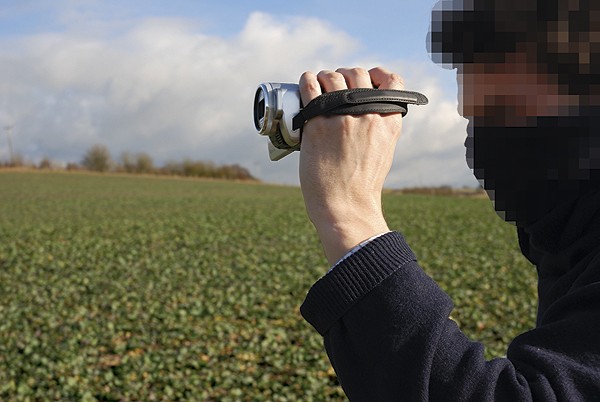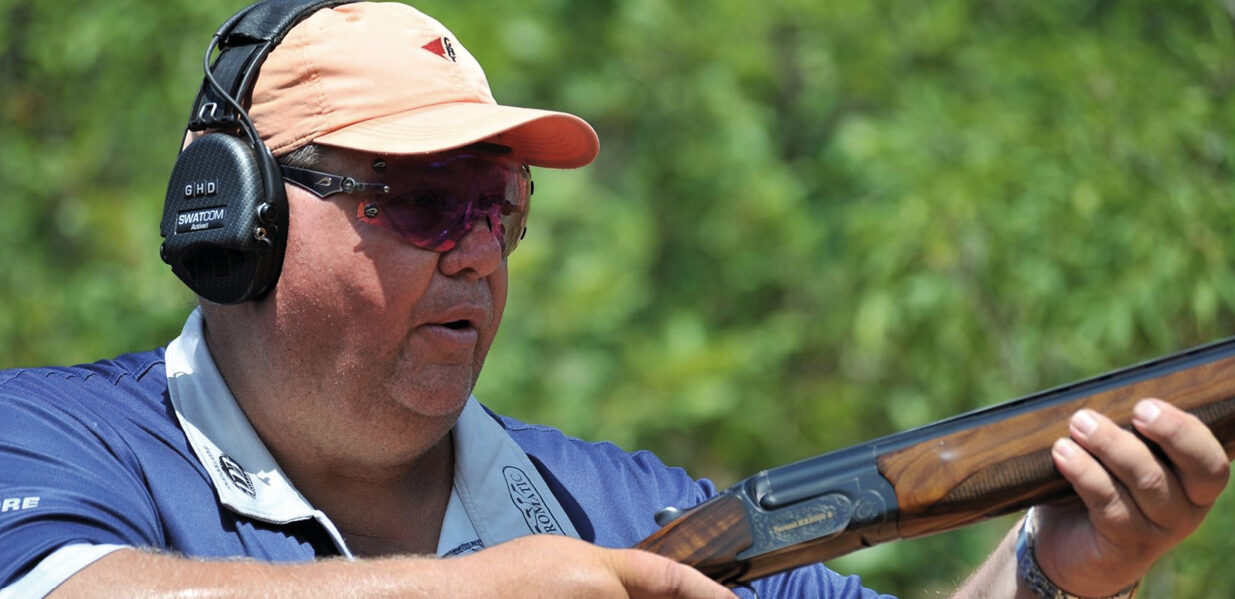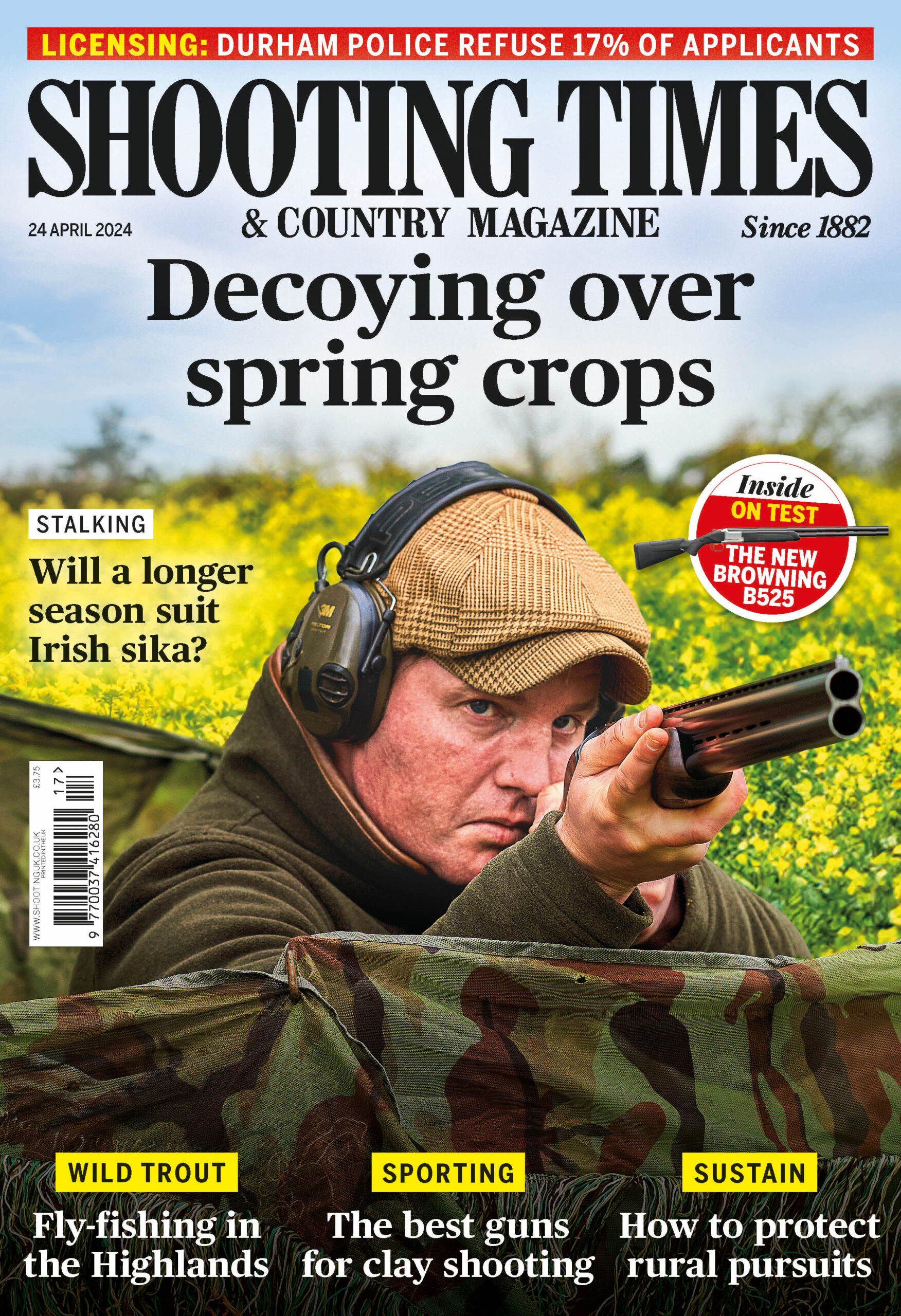Watching them watching you

The principles of our legal system should be straightforward. If you are alleged to have done something illegal you are investigated by the police, and if that investigation produces enough evidence to support the allegation, you will be prosecuted by the Crown Prosecution Service (CPS). Sometimes the allegation is made by a member of the public, at other times it emanates from the police, but the process of investigation and prosecution should remain the same, whichever law is in question.
Increasingly, however, animal welfare and wild animal legislation is being dealt with in a different way. The police, overstretched as they are, have begun to share and in some cases hand over the role of investigating and prosecuting crimes to non-governmental organisations. This started with the RSPCA, some of whose employees dress in uniforms and give themselves equivalent ranks to real police officers.
The RSPCA also brings its own prosecutions under legislation such as the 2006 Animal Welfare Act, the 1992 Badgers Act and the 2004 Hunting Act. Though the motives of the RSPCA are often to be applauded, the private prosecutions it brings can be very expensive to defend, and a quirk of the law means that even if it is unsuccessful it is the public purse rather than the RSPCA that meets the costs.
The RSPB does not bring prosecutions itself. It has an investigations unit, which works with police forces, particularly on cases of alleged persecution and taking of wild birds of prey and their eggs. No police raid on a gamekeeper is complete without an RSPB representative, and evidence gathered by its investigators has been used to bring numerous prosecutions to court.
The 2004 Hunting Act has brought the issue of the involvement of campaigning organisations and activists in investigations and prosecutions to the fore. Two groups, the League Against Cruel Sports (LACS) and the International Fund for Animal Welfare (IFAW), have spent a great deal of time and money attempting to investigate hunts and gathering evidence of illegal hunting. They have also both brought private prosecutions under the 2004 Hunting Act. Investigators, both paid and unpaid, who work for these groups use covert surveillance techniques as a matter of course. A favoured method is for up to eight investigators working in pairs to film a hunt covertly with long lenses from different viewing points. Investigators also mingle with hunt supporters, secretly filming them with hidden cameras, and they are particularly keen on using fixed, movement-activated cameras in the vicinity of any hole they can claim is a badger sett.
Authorisation required
The use of covert surveillance is controlled by the 2000 Regulation of Investigatory Powers Act (RIPA). If the police wanted to carry out the sort of surveillance that the RSPB, LACS and IFAW investigators regularly carry out, each surveillance operation would have to be authorised under RIPA. To be authorised, the surveillance would have to be proportionate to what is sought to be achieved. Much of the covert surveillance carried out by activists could never meet this test as they are shopping trips targeting hunts or gamekeepers on the off chance that an unspecified offence might be committed. If it could be shown through intelligence that covert surveillance was proportionate to the collection of evidence of a specific offence there is no reason why the police could not authorise third parties to carry out surveillance, but they could not authorise trespass or the breaking of other laws in the process. So, for instance, if the RSPCA had credible intelligence that a dog fight had been planned and it applied to the police for RIPA authorisation to carry out covert surveillance of the event, authorisation could be given. If, however, an animal rights organisation asked for authorisation for the covert surveillance of a hunt or gamekeeper on the basis of unspecified allegations of illegal activity on private property, that surveillance would not pass the test of proportionality, and authorisation should not be given.
The purpose of RIPA is to ensure that covert surveillance is compatible with the European Convention on Human Rights. Essentially RIPA authorisation justifies a breach of Article 8: the right to private life. If surveillance is not authorised, the target of that surveillance might well have had his or her rights breached. Actions under the 1998 Human Rights Act can only be brought against statutory bodies, so it is when those bodies, the police and the CPS, become involved with evidence gathered through unauthorised surveillance that there is recourse in law.
Groundbreaking case
This issue has come to the fore as the result of an extraordinary 1992 Badgers Act case involving a hunt employee, LACS and Dorset Police, which took up six days in Bournemouth Magistrates Court before the district judge finally threw it out on 21 January 2010. The case raised fundamental questions about the role of activists and animal rights groups in the investigation and prosecution of animal welfare and wild mammal legislation. The evidence showed clearly that police officers were working with the LACS investigators with the aim of accessing evidence to bring a prosecution and when the CPS launched a prosecution it was LACS, not the police or the CPS, that had control of the evidence.
The potential for abuse of due process in such a case is clear. An activist working for a campaign group, whether in a salaried or voluntary capacity, does not presume the innocence of hunt staff or gamekeepers, he or she pursues their guilt. When activists collect and collate evidence that the police and the CPS then use to prosecute, the statutory bodies cannot be certain that they have fulfilled their responsibilities to the court because they do not have control of the evidence. In the Dorset case nearly every prosecution witness admitted that there was undisclosed evidence of which both the prosecution and the defence were unaware.
As a result of the rulings in the Dorset case, the CPS has been forced to issue guidance on the use of covert surveillance by non-governmental organisations. It says: Where the police are aware of the intention of the non-governmental organisation to conduct covert surveillance and intend making use of the surveillance product in the event that it reveals evidence of a crime, it would be appropriate to seek an authorisation. This would undoubtedly be the case when the non-governmental organisation is tasked to conduct the surveillance, whether explicitly or by necessary implication. However, no authorisation would be required where the police neither initiate nor encourage the surveillance even though they may be aware of it.
Extraordinary reaction
The LACS, in particular, has reacted in an extraordinary way to the new guidance. Its response included tabling an Early Day Motion accusing the Countryside Alliance of subverting the rule of law by claiming that evidence of illegal hunting collated by monitors working on behalf of organisations such as the League Against Cruel Sports is illegal under the 2000 Regulation of Investigatory Powers Act. We can be fairly certain that it has caused a similarly concerned, if less public, reaction inside the RSPB and RSPCA.
It is quite clear from its own evidence that the RSPB investigations unit works hand in glove with police officers all over the country, and any suggestion the police do not encourage the covert surveillance it carries out, or intend making use of the surveillance product would be laughed out of court. The RSPB, like LACS, IFAW and the RSPCA, is also a member of the Partnership Against Wildlife Crime whose main objective is to promote the enforcement of wildlife conservation legislation, particularly through supporting the networks of police wildlife crime officers.
And before the criticism starts, lets be clear that this is not about protecting those in our community who might be acting illegally. It is about ensuring that those who are within the law cannot be unjustifiably targeted in breach of their rights. It is about ensuring that keepers and huntsman do not face the same sort of flawed prosecution that forced a Dorset hunt employee to leave his job to spend two years proving his innocence. It is about ensuring that it is the police, not activists and animal rights vigilantes, which enforces animal welfare and wild animal legislation.








